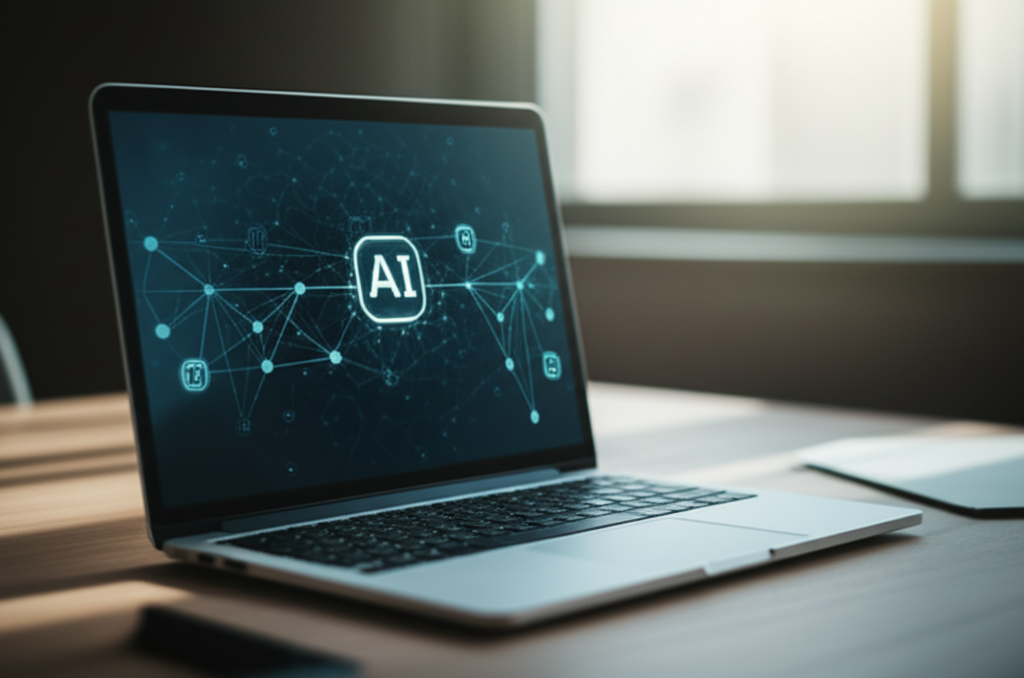
Meta description: Discover how AI Agents are revolutionizing industries in 2025. This guide explores their capabilities, applications, and future impact.
Understanding the Rise of AI Agents
AI Agents are rapidly transforming how we interact with technology, and by 2025, they will be even more integral to our daily lives. These intelligent systems are designed to perform tasks autonomously, making decisions and adapting to new situations without constant human intervention. As we delve deeper into the era of automation, understanding the capabilities and potential of AI Agents becomes crucial.
AI Agents represent a significant leap forward in artificial intelligence. Unlike traditional software, they can perceive their environment, make decisions, and take actions to achieve specific goals. This adaptability makes them incredibly versatile across various industries.
Key Characteristics of Effective AI Agents
To fully appreciate the potential of AI Agents, it’s important to understand their key characteristics. These features enable them to function effectively in diverse and complex environments.
– Autonomy: AI Agents operate independently, making decisions without direct human input.
– Reactivity: They respond to changes in their environment in real time.
– Proactiveness: They initiate actions to achieve their goals, not just reacting to stimuli.
– Social Ability: Many AI Agents can interact with other agents and humans to collaborate and coordinate tasks.
Applications of AI Agents Across Industries
The versatility of AI Agents makes them applicable across a wide range of industries, each benefiting uniquely from their capabilities. From healthcare to finance, AI Agents are optimizing processes, enhancing decision-making, and creating new opportunities.
Healthcare Revolution
In healthcare, AI Agents are assisting with diagnostics, personalized treatment plans, and patient monitoring. For instance, AI-powered systems can analyze medical images to detect diseases earlier and more accurately than human doctors.
– AI Agents can monitor patients’ vital signs remotely, alerting healthcare providers to any anomalies.
– They can also assist in drug discovery by analyzing vast amounts of data to identify potential drug candidates.
Financial Services Transformation
The financial sector is leveraging AI Agents for fraud detection, algorithmic trading, and customer service. These agents can analyze transaction data in real-time to identify and prevent fraudulent activities.
– AI-driven trading algorithms can execute trades faster and more efficiently than human traders, optimizing investment strategies.
– Chatbots powered by AI Agents are providing 24/7 customer support, answering queries and resolving issues instantly.
Retail and E-commerce Innovation
AI Agents are transforming the retail and e-commerce landscape by personalizing shopping experiences, optimizing supply chains, and managing inventory. Recommender systems powered by AI can suggest products tailored to individual customer preferences.
– AI Agents can analyze sales data to predict demand and optimize inventory levels, reducing waste and increasing profitability.
– Virtual assistants can guide customers through the shopping process, providing personalized recommendations and support.
Developing and Deploying AI Agents
Creating effective AI Agents requires a strategic approach, combining the right technologies, data, and expertise. The development process involves several key steps, from defining the agent’s goals to deploying and monitoring its performance.
Choosing the Right Technology Stack
Selecting the appropriate technology stack is crucial for building robust and scalable AI Agents. This includes choosing the right programming languages, machine learning frameworks, and cloud platforms.
– Python is a popular choice for AI development due to its extensive libraries and frameworks like TensorFlow and PyTorch.
– Cloud platforms like AWS, Azure, and Google Cloud provide the infrastructure and services needed to deploy and manage AI Agents at scale.
Data Collection and Preparation
Data is the lifeblood of AI Agents. Collecting and preparing high-quality data is essential for training effective models. This involves cleaning, transforming, and labeling data to make it suitable for machine learning algorithms.
– Data should be diverse and representative of the real-world scenarios the agent will encounter.
– Data augmentation techniques can be used to increase the size and variability of the training dataset.
Training and Evaluating AI Models
Training AI models involves feeding them large amounts of data and adjusting their parameters to improve their performance. Evaluation is crucial to ensure the agent is accurate, reliable, and capable of generalizing to new situations.
– Techniques like cross-validation and A/B testing can be used to evaluate the agent’s performance in different scenarios.
– Monitoring the agent’s performance in real-time is essential for identifying and addressing any issues that may arise.
The Future of AI Agents: Trends and Predictions
Looking ahead to 2025 and beyond, AI Agents are poised to become even more sophisticated and pervasive. Several key trends are shaping their future development and adoption.
Enhanced Autonomy and Decision-Making
AI Agents will become increasingly autonomous, capable of making complex decisions without human intervention. This will require advancements in areas like reinforcement learning and decision theory.
– AI Agents will be able to learn from their experiences and adapt to new situations more effectively.
– They will be able to reason about uncertainty and make decisions based on incomplete or ambiguous information.
Improved Collaboration and Communication
AI Agents will be able to collaborate more effectively with each other and with humans. This will require advancements in areas like natural language processing and multi-agent systems.
– AI Agents will be able to understand and respond to human language more naturally.
– They will be able to coordinate their actions with other agents to achieve common goals.
Ethical Considerations and Governance
As AI Agents become more powerful, ethical considerations and governance become increasingly important. It’s crucial to ensure that these agents are used responsibly and in a way that benefits society.
– Guidelines and regulations are needed to address issues like bias, privacy, and accountability.
– Transparency and explainability are essential for building trust in AI Agents and ensuring they are used ethically.
– Quote from Andrew Ng: “AI is the new electricity. Just as electricity transformed industries a century ago, AI will now transform industries in the coming years.”
Overcoming Challenges in AI Agent Implementation
While the potential of AI Agents is vast, implementing them successfully is not without its challenges. Overcoming these hurdles requires careful planning, investment, and a commitment to continuous improvement.
Data Availability and Quality
Access to high-quality data is often a major obstacle in AI Agent development. Organizations need to invest in data collection, cleaning, and preparation to ensure their agents have the information they need to function effectively.
– Establishing data governance policies and procedures can help ensure data quality and consistency.
– Collaborating with other organizations to share data can help overcome data scarcity.
Skills Gap and Talent Acquisition
Finding and retaining skilled AI professionals is another significant challenge. Organizations need to invest in training and development programs to build the expertise they need to develop and deploy AI Agents.
– Partnering with universities and research institutions can help organizations access top talent.
– Offering competitive salaries and benefits can help attract and retain skilled AI professionals.
Integration with Existing Systems
Integrating AI Agents with existing systems can be complex and time-consuming. Organizations need to carefully plan and execute the integration process to ensure seamless compatibility and minimal disruption.
– Using APIs and standardized interfaces can simplify the integration process.
– Adopting a modular and scalable architecture can make it easier to integrate AI Agents with existing systems.
Embracing the AI Agent Revolution
AI Agents are set to redefine industries and reshape our interaction with technology by 2025. From enhancing healthcare and transforming finance to personalizing retail experiences, their potential is limitless. Understanding their capabilities, addressing implementation challenges, and staying abreast of future trends is crucial for businesses and individuals alike.
By embracing AI Agents, we can unlock new levels of efficiency, innovation, and value. The journey requires strategic planning, technological investment, and a commitment to ethical practices. But the rewards are well worth the effort.
For more insights or collaboration opportunities, visit www.agentcircle.ai.






